Beck’s Model of Depression: Also called The Cognitive Triad or Negative Triad
Depression is a mood disorder characterized by persistent low mood, feeling of sadness and a loss of interest.
This is a persistent problem, and not a passing one, lasting on an average 6 to 8 months, affecting the quality of life of an individual.
The causes of depression are multifaceted :
- genetics
- biological ( changes in the neurotransmitter level of the brain)
- environmental or psychosocial.
Some people are at a higher risk of depression due to life events like bereavement, divorce, work issues family and financial problems, or simply due to acute stress.
Childhood trauma, some prescription drugs, (steroids), and recreational drugs like alcohol or amphetamines are strongly linked to depression.
Chronic pain syndrome, and conditions like diabetes, and cardiovascular diseases can also make a person depression prone.
The Cognitive Triad is a cognitive model developed by Aaron Beck to describe the cause of depression.
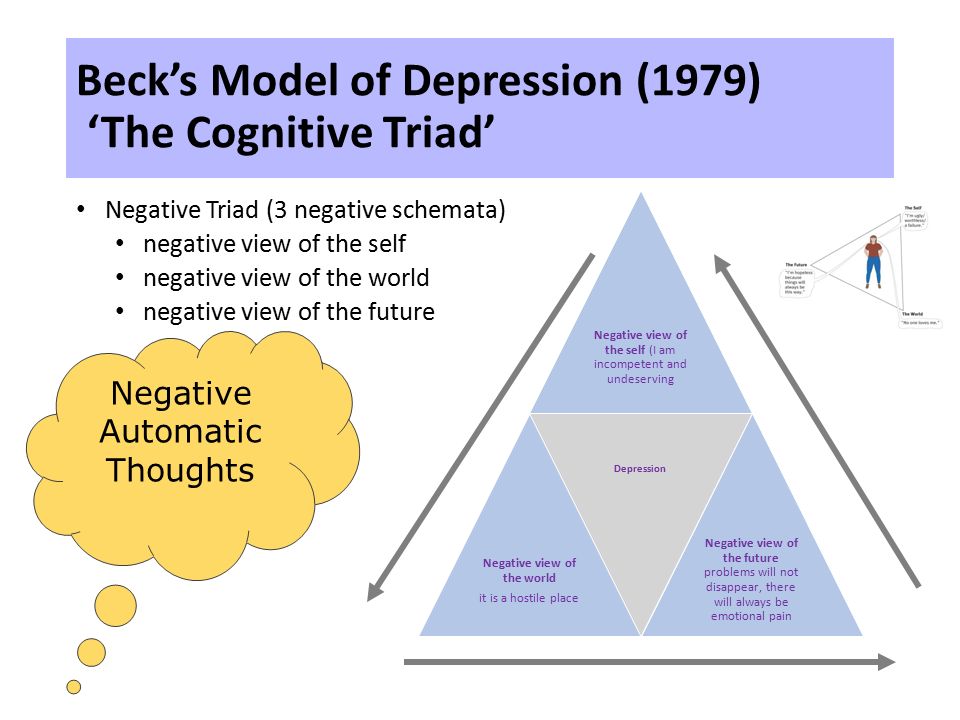
He proposed that three types of negative thoughts lead to depression:
- thoughts about the self,
- thoughts about the world/environment,
- thoughts about the future.
People suffering from depression will attribute negative and unpleasant events to their personal failings (self) and to the unfair and unforgiving world.
The future is perceived to be bleak and devoid of hope with their troubles lasting forever.
Thus “hopelessness”.
“Helplessness and worthless” are the dominant feelings in a person suffering from depression.
Components of this cognitive triad often feed and strengthen each other.
No wonder , being so focused on the negatives , a depressed person ,when asked to share “what is going good in your life?’’ cannot find an appropriate answer.
Beck developed a cognitive explanation of depression which has three components:
- cognitive bias
- negative self-schemas
- the negative triad.
1) Cognitive Bias/ Cognitive Distortions
Beck found that depressed people are more likely to focus on the negative aspects of a situation, while ignoring the positives.
They are prone to distorting and misinterpreting information, a process known as cognitive bias or cognitive distortions Beck (1967) identifies a number of illogical thinking processes (i.e. distortions of thought processes). These illogical thought patterns are self-defeating, and can cause great anxiety or depression for the individual.
Read How to Ask for Help With Depression: 8 Ways To Reach Out & Start Recovering
1. Arbitrary interference:
Drawing conclusions on the basis of sufficient or irrelevant evidence: for example, thinking you are worthless because an open air concert you were going to see has been rained off.
2. Selective abstraction:
Focusing on a single aspect of a situation and ignoring others: E.g., you feel responsible for your team losing a football match even though you are just one of the players on the field.
3. Magnification:
exaggerating the importance of undesirable events. E.g., if you scrape a bit of paintwork on your car and, therefore, see yourself as a totally awful driver.
4. Minimisation:
underplaying the significance of an event. E.g., you get praised by your teachers for an excellent term’s work, but you see this as trivial.
5. Overgeneralization:
drawing broad negative conclusions on the basis of a single insignificant event. E.g., you get a D for an exam when you normally get straight As and you, therefore, think you are stupid.
6. Personalisation:
Attributing the negative feelings of others to yourself. E.g., your teacher looks really cross when he comes into the room, so he must be cross with you.
2) Negative self-schemas
A schema is a ‘package’ of knowledge, which stores information and ideas about our self and the world around us.
These schemas are developed during childhood and according to Beck, depressed people possess negative self-schemas, which may come from negative experiences, for example criticism, from parents, peers or even teachers. Beck believed that depression prone individuals develop a negative self-schema.
They possess a set of beliefs and expectations about themselves that are essentially negative and pessimistic.
Beck claimed that negative schemas may be acquired in childhood as a result of a traumatic event.
Experiences that might contribute to negative schemas include:
- Death of a parent or sibling.
- Parental rejection, criticism, over protection, neglect or abuse.
- Bullying at school or exclusion from peer group.
- People with negative self schemas become prone to making logical errors in their thinking and they tend to focus selectively on certain aspects of a situation while ignoring equally relevant information.
3) The Negative Triad
Beck claimed that cognitive biases and negative self-schemas maintain the negative triad. It’s a negative and irrational view of ourselves, our future and the world around us.
For sufferers of depression, these thoughts occur automatically and are symptomatic of depressed people.
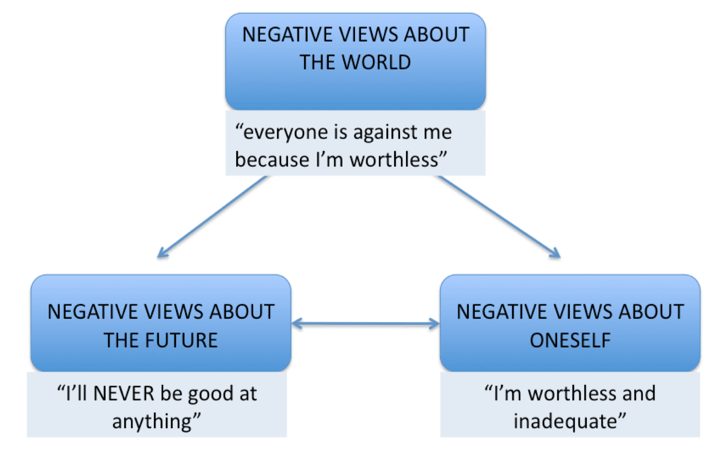
The negative triad demonstrates these three components, including:
- The self – ‘nobody loves me.’
- The world – ‘the world is an unfair place.’
- The future – ‘I will always be a failure.’
Beck thinks that the negative thoughts of depressed individuals tend to appear quickly and automatically. They are reflexes, and are not the subject of a conscious control. Such thoughts often lead to negative emotions, such as sadness, despair, fear, etc.
Measuring aspects of the triad
A number of instruments have been developed to attempt to measure negative cognition in the three areas of the triad.
The Beck Depression Inventory (BDI) is a well-known questionnaire for scoring depression based on all three aspects of the triad.
Other examples include the Beck Hopelessness Scale for measuring thoughts about the future and the Rosenberg Self-Esteem Scale for measuring views of the self.
The Cognitive Triad Inventory (CTI) was developed by Beckham et al. to attempt to systematically measure the three aspects of Beck’s triad.
The CTI aims to quantify the relationship between “therapist behaviour in a single treatment session to changes in the cognitive triad” and “patterns of changes to the triad to changes in overall depressive mood”.
This inventory has since been adapted for use with children and adolescents in the CTI-C, developed by Kaslow et al.
Dealing with the depressive triad
Negative and unrealistic thoughts can cause us distress and result in problems.
When a person suffers with psychological distress, the way in which they interpret situations becomes skewed, which in turn has a negative impact on the actions they take.
Cognitive Behavior Therapy aims to help people become aware of when they make negative interpretations, and of behavioral patterns which reinforce the distorted thinking. Cognitive therapy helps people to develop alternative ways of thinking and behaving which aims to reduce their psychological distress.
Cognitive behavioral therapy (CBT) is a form of psychotherapy which can be used to treat people with a wide range of mental health problems.
CBT is based on the idea that how we think (cognition), how we feel (emotion) and how we act (behavior) all interact together. Specifically, our thoughts determine our feelings and our behavior.
The cognitive therapist teaches clients how to identify distorted cognitions through a process of evaluation. The clients learn to discriminate between their own thoughts and reality. They learn the influence that cognition has on their feelings, and they are taught to recognize observe and monitor their own thoughts.
The behavior part of the therapy involves setting homework for the client to do (e.g. keeping a diary of thoughts). The therapist gives the client tasks that will help them challenge their own irrational beliefs.
The idea is that the client identifies their own unhelpful beliefs and them proves them wrong. As a result, their beliefs begin to change.
With the proper assistance and treatment, people with depression touch hope and move forward to live a better life.
References:
- Beck, Aaron, T.; Rush, A. John; Shaw, Brian F.; Emery, Gary (1987). Cognitive Therapy of Depression. Guilford Press.
- “Overview of Beck’s Cognitive Theory of Depression”. personalityresearch.org.
- “Cognitive Behavioral Therapy | CBT | Simply Psychology”. simplypsychology.org.
- Beck, Aaron T.; Steer, Robert A.; Beck, Judith S.; Newman, Cory F. (1993-06-01). “Hopelessness, Depression, Suicidal Ideation, and Clinical Diagnosis of Depression”. Suicide and Life-Threatening Behavior.
- Sadock, Sadock, Ruiz, Benjamin J., Virginia Alcott, Pedro (2009). Kaplan and Sadock’s Comprehensive Textbook of Psychiatry. Lippincott Williams and Wilkins.
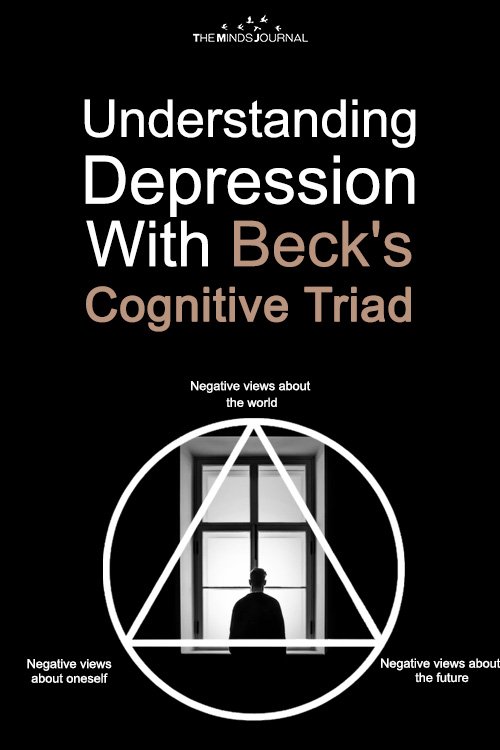
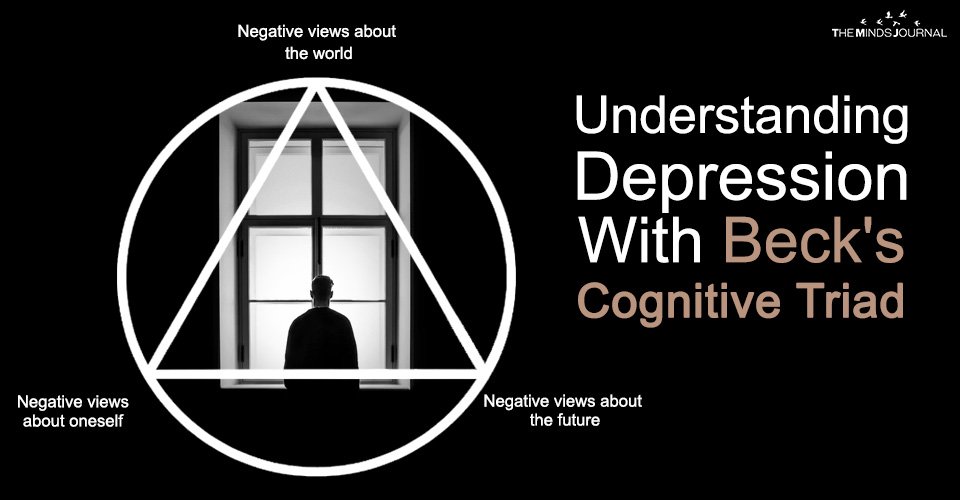

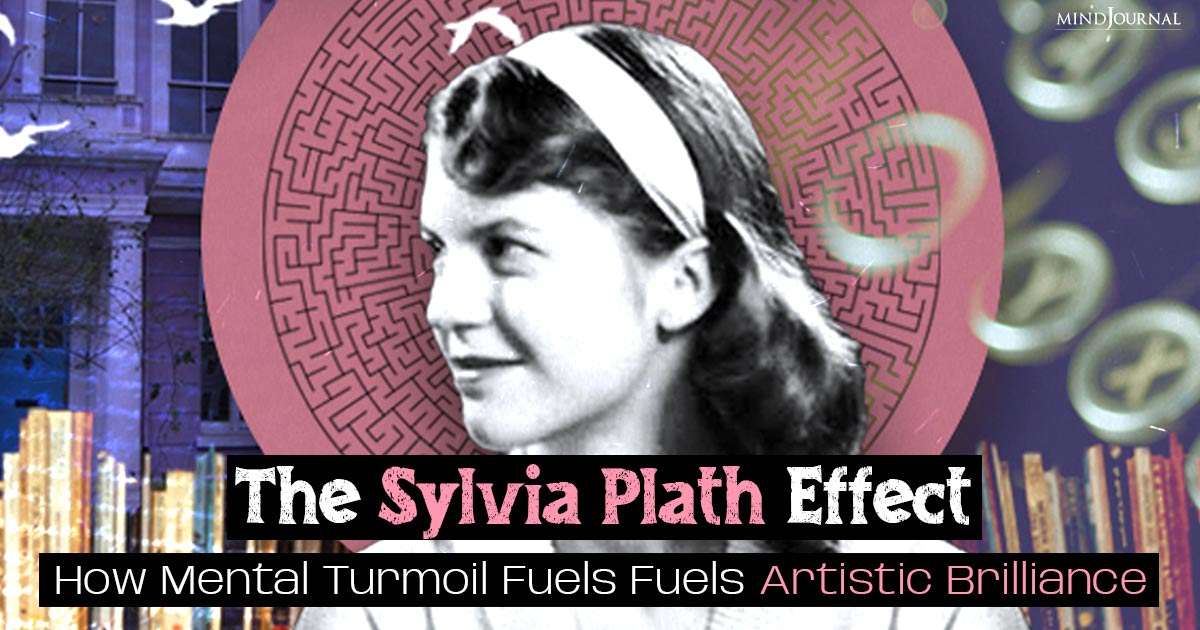
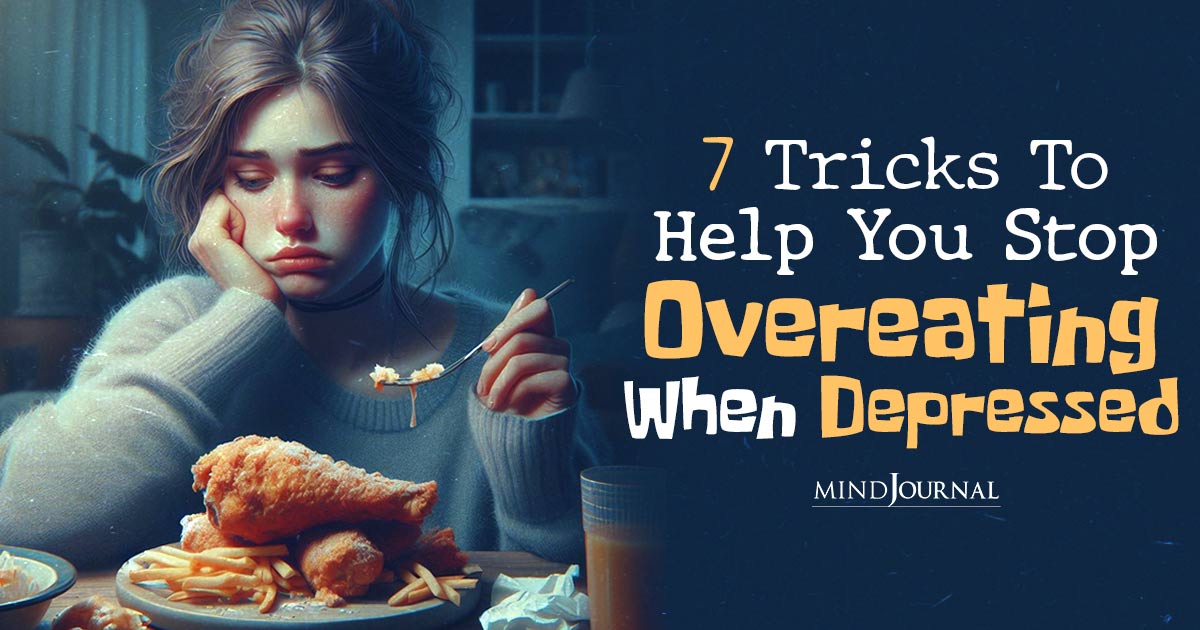

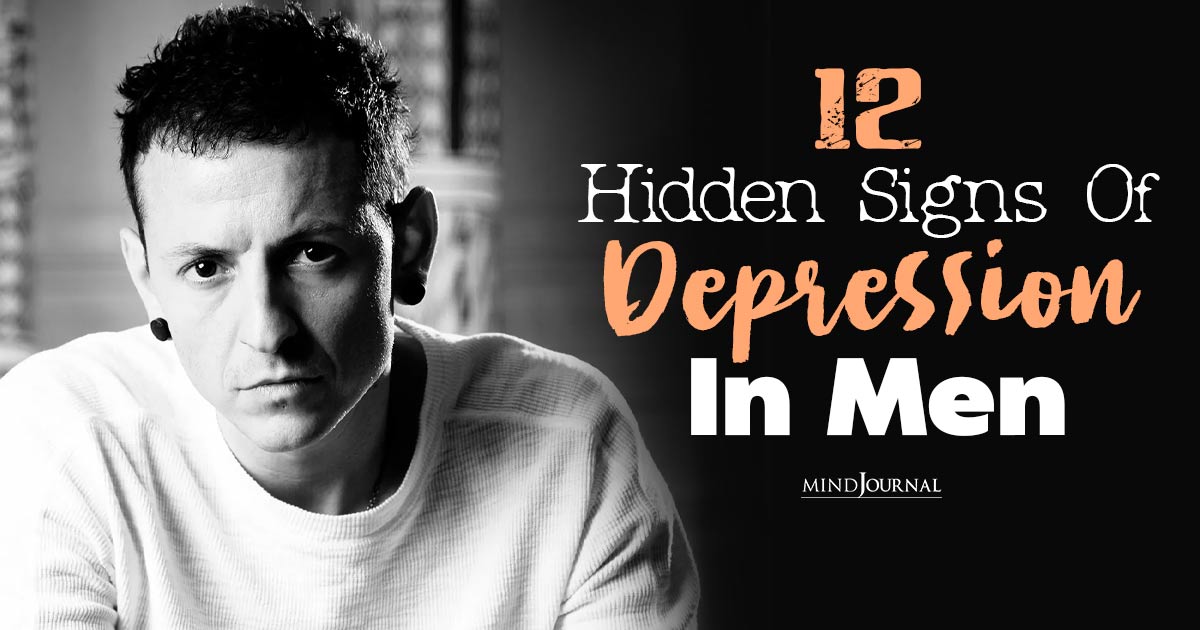
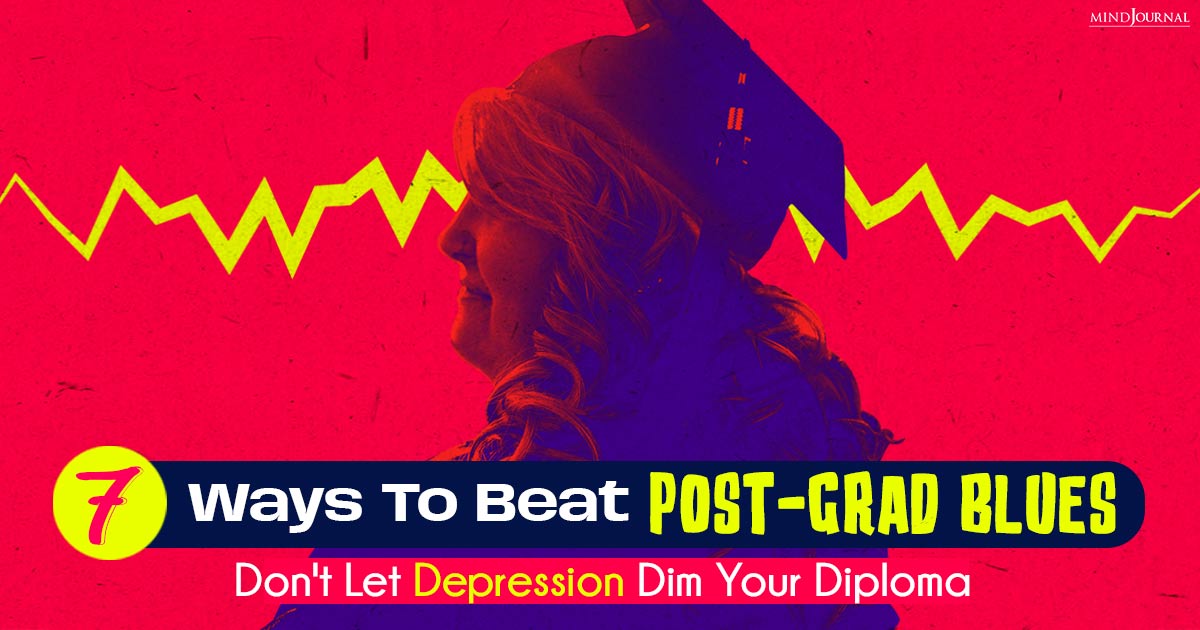
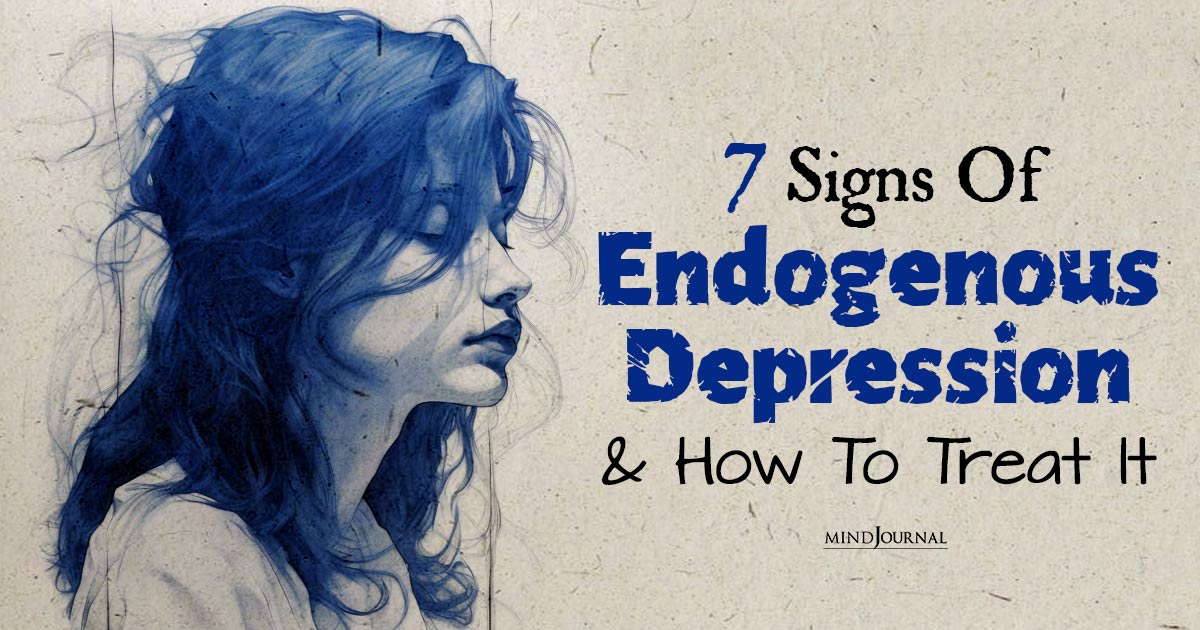
Leave a Reply
You must be logged in to post a comment.